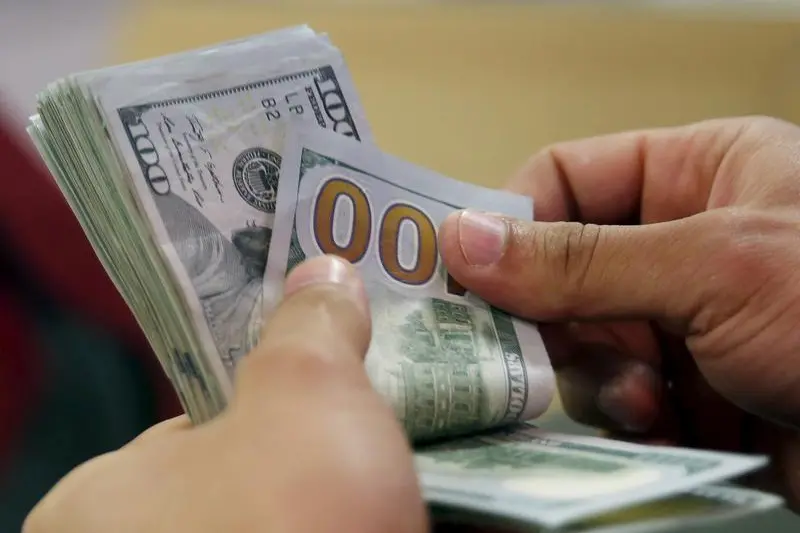PHOTO
WASHINGTON/LONDON - The dollar pared losses on Friday after a fresh readout of inflation data and was on track for a third straight weekly gain, as markets raised bets on higher-for-longer interest rates and nervously eyed last-ditch talks on the U.S. debt ceiling.
U.S. consumer spending increased more than expected in April, jumping 0.8% last month, the Commerce Department said on Friday, boosting the economy's growth prospects for the second quarter. Economists polled by Reuters had forecast consumer spending, which accounts for more than two-thirds of U.S. economic activity, rising 0.4%.
The personal consumption expenditures (PCE) price index increased 0.4% in April after rising 0.1% in March. In the 12 months through April, the PCE price index increased 4.4% after advancing 4.2% in March
Following the data, the dollar hit a new six-month high against the yen and last stood at 140.255.
Apparent progress on Thursday in the talks between President Joe Biden and top congressional Republican Kevin McCarthy helped ease jitters, but markets stayed on edge over any risk of a default ahead of a long bank holiday weekend in the U.S.
"Monday is a bank holiday in the U.S. so market participants will have to wait until Tuesday 30th May to trade positions again so there is a strong belief that Washington needs to make a deal happen today," currency analysts at MUFG said in a note.
Wall Street traders have become increasingly wary of U.S. government debt securities, but the prospect of an imminent deal helped lift sentiment across markets on Friday and boost more risk-sensitive currencies at the expense of the dollar.
The U.S. dollar index, which tracks the currency against six major counterparts, was last down 0.096% on the day at 104.130, just off Thursday's two-month high of 104.31.
The dollar's recent momentum has also been driven by raised expectations that the Federal Reserve will have to keep interest rates higher for longer to subdue inflation.
Data released on Thursday showed the number of Americans filing new claims for unemployment benefits increased moderately last week to 229,000, lower than expectations.
"Recent moves in currencies have been mainly driven by a sharp repricing of FOMC policy," said Carol Kong, a currency strategist at Commonwealth Bank of Australia (CBA).
Leading European policymakers struck varying tones on the future path of euro zone inflation on Friday, with European Central Bank chief economist Philip Lane pushing back against concerns about core inflation.
The euro was last up 0.07% against the dollar at $1.07320, but was not far from its two-month low of $1.0708 hit in the previous session.
Sterling gained 0.3% to $1.23570, after data showed British consumers picked up spending in April, although the currency was still heading for a weekly loss.
(Additional reporting by Rae Wee in Singapore; Editing by Clarence Fernandez and Mark Potter)





















